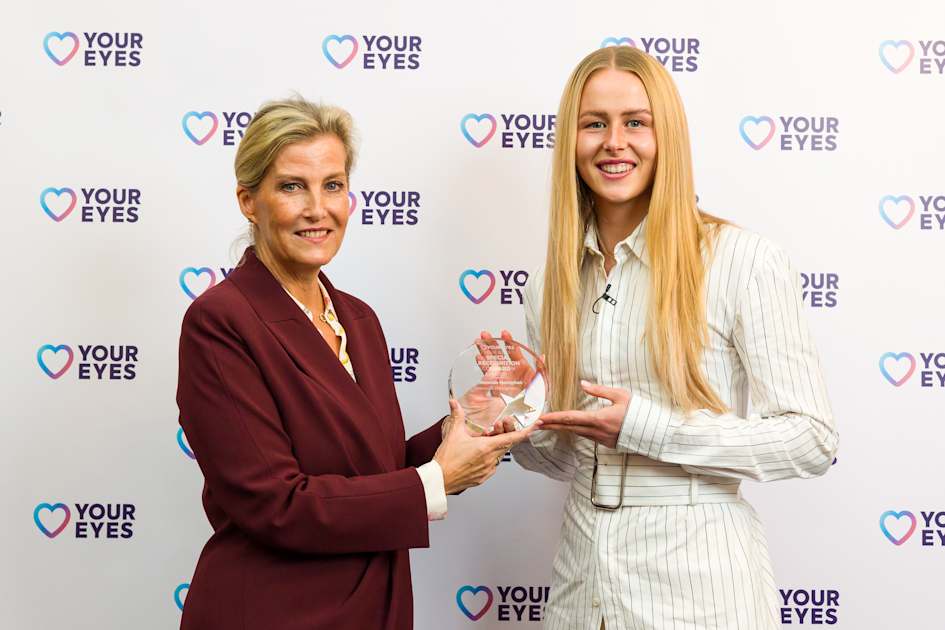To mark World Sight Day, HRH The Duchess of Edinburgh, Global Ambassador for IAPB, has presented celebrated England Women and Chelsea goalkeeper Hannah Hampton with a ‘Love Your Eyes Special Recognition…
Hannah Hampton honoured for inspiring others by sharing her eye health story | News | Official Site
